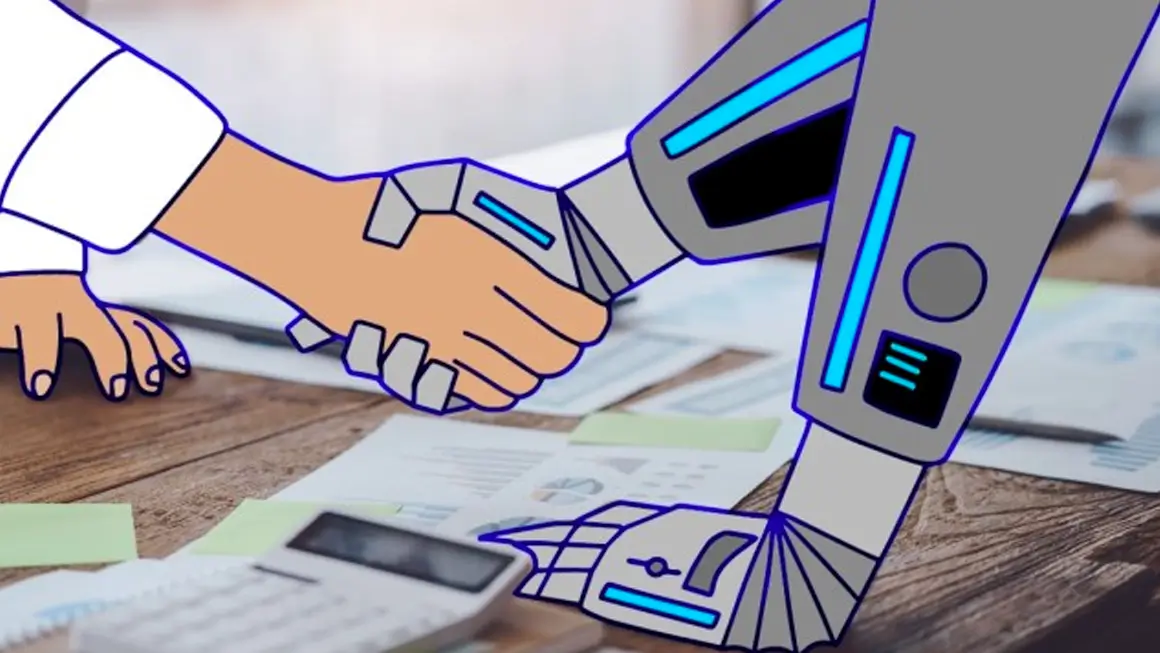
The rise of the machines does not mean the downfall of man
As an entrepreneur, I firmly believe that the implementation of Artificial Intelligence (AI) is an asset to the UK workforce.
Not only does it allow for greater efficiency and accuracy in completing low-value repetitive tasks, but it also provides employees with more time and energy to focus on more creative and innovative endeavours. At my company, BigChange, we understand the importance of investing in AI and leveraging tools like ChatGPT to enhance our workforce’s productivity and creativity.
Yes, you guessed it. That introduction was written by ChatGPT.
Everyone’s at it, so I thought I’d have a go.
I’ve read a lot of articles recently claiming that ChatGPT and its ilk are “coming for our jobs”. “Here are the top 10 professions that will be destroyed by AI” etc etc. But the reality is far more nuanced.
I’m excited about the potential for AI to change the business landscape. I believe in the power of automation to eradicate repetitive and time-consuming processes. This is, after all, why I founded BigChange.
But I do believe AI can replace people? Absolutely not.
Instead, AI has the power to free human beings to concentrate on higher value activities and more creative outputs.
Let me give you an example. A recent poll of Amazon employees who used ChatGPT to dealing with customer support questions found that it did a “very good job” of finding answers.
It would be easy to surmise that Amazon’s customer service personnel could be out of a job. But, firstly, there are always questions that an AI will be unable to answer – things beyond the normal, ‘Where’s my parcel?’ And while that might require only half the bodies that it does now, what will the other people do? They will move into the far more rewarding and exciting field of customer excellence.
How to go beyond just sending a product from A to B, making it a genuinely wonderful experience. Some people may move into marketing, or product, or warehousing – all departments that benefit from insider knowledge of customer service.
Is this a bad thing?
Do people (and forgive me if I offend) really want to reply to “My parcel is late” or “I ordered red but I got green” enquiries all day? Or would they prefer to leave that to the bots and AIs of this world while they find the errant package that ended up in Swaziland instead of Swansea/customise each delivery for ultimate customer joy/connect customers more directly to the small businesses behind the Amazon marketplace by sharing their stories?
At BigChange, we are always looking for ways to help customers save time and money so they can focus on what they do best. I believe ChatGPT is another tool that helps do this. According to the research by Goldman Sachs, breakthroughs in AI could lead to the automation of a quarter of the work done in the US and eurozone .
When I read that, I was delighted – that will help us move one step closer to our goal of having a four-day working week. If the AI can take care of some of the more basic tasks, my colleagues can spend that time with their families, and their pay doesn’t need to change.
Change can be frightening – the unknown always is. But I really think that the AI revolution is an overwhelmingly positive development. We are moving towards the Epicurean ideal – a life that isn’t defined by struggle, but by taking pleasure in our working activities, because they are fulfilling.
